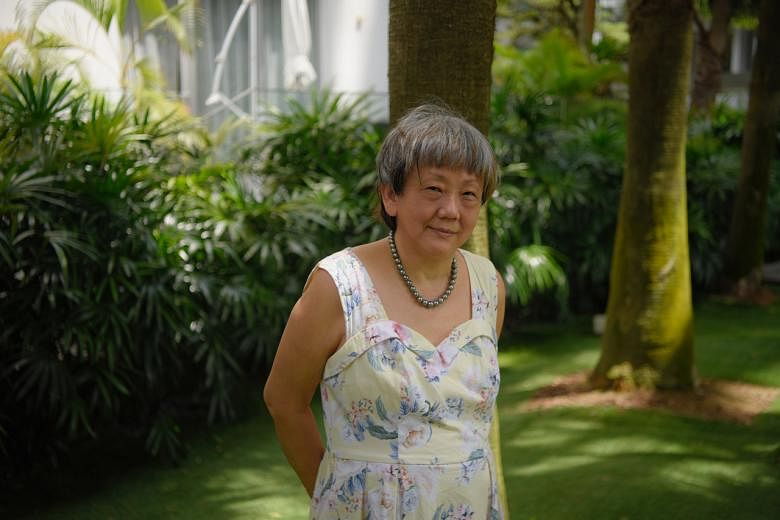From high tide to low ebb — the billion dollar mirage of Hyflux
Once celebrated as Singapore’s homegrown water technology champion, Hyflux’s mounting losses, overleveraging, and failed rescue bids turned it into one of the country’s most high-profile corporate collapses.
By
Zat Astha / 12 Aug 2025
The Straits Times
Share this article
Fallout explores the stories behind brands that rose quickly, captured imaginations, and then lost their footing. Each instalment traces the journey from early promise to public scrutiny, examining how ambition, changing tastes, and unforeseen challenges can upend even the brightest ventures. Through thoughtful reporting and careful reflection, the series looks at what happens after the spotlight fades—and what these stories reveal about the worlds that created them. Today, we train our sights on Hyflux.
In May 2018, the queue outside Hyflux’s headquarters told a story more vividly than any court filing. Elderly investors clutched plastic folders stuffed with bond certificates. Some scrolled their phones for updates, others stood in quiet conversation, their expressions split between disbelief and anger.
The company that once symbolised Singapore’s entrepreneurial grit had just filed for court protection from creditors, freezing billions in debt repayments, and thousands of ordinary Singaporeans were about to discover what it meant to be “unsecured” in every sense of the word.
The filing marked the most dramatic collapse of a high-profile Singapore-listed company in recent memory, wiping out close to S$2.95 billion in debt and equity value. It would be easy to dismiss this as another mere financial implosion but in reality, it was a psychic break with the narrative Singapore had built around Hyflux and its founder, Olivia Lum.
For decades, the story had been one of improbable ascent: a young woman arriving from Malaysia with nothing, building a water technology empire from scratch, and becoming the country’s first self-made female billionaire. That story would now be reinterpreted through a darker lens — ambition shading into overreach, and confidence tipping into hubris.
From $20,000 to national icon
Hyflux began in 1989 as Hydrochem, a two-person start-up founded by Lum, then 28 years old, with S$20,000 in savings.
The company’s earliest operations involved trading water treatment equipment to industrial clients, but Lum quickly saw the potential in manufacturing her own membrane filtration products.
Her big break came in 2000 when Hyflux won the contract to build Singapore’s first NEWater plant at Bedok. That win gave the company prestige and political capital — it was now a strategic player in Singapore’s water security strategy.
By the early 2000s, Hyflux was expanding aggressively into China, winning large municipal water projects, and later, contracts in Algeria, Oman, and Saudi Arabia. In 2001, it listed on the Singapore Exchange, raising capital to fund its expansion. Investors bought into the narrative of a “national champion,” a rare example of a Singaporean SME scaling successfully in global infrastructure.
Play
Lum became a fixture at business awards, was appointed to government advisory boards, and in 2011, won Ernst & Young’s World Entrepreneur of the Year — an accolade that burnished her international reputation.
At its peak, Hyflux reported annual revenues exceeding S$500 million, with a market capitalisation above S$1.5 billion. Debt levels were modest, and projects were typically backed by long-term contracts with predictable revenue streams. That fiscal conservatism would be tested in the next phase of growth.
Tuaspring and the lure of power
In 2008, Hyflux made its first move into power generation with the SingSpring Desalination Plant, which included a co-located gas-fired power plant. The model was designed to offset desalination’s high energy costs with electricity sales to the national grid. Encouraged by the initial results, Hyflux doubled down.
Hyflux Tuaspring desalination plant at Tuas, taken on 5 Apr 2019.
The Straits Times
In 2011, it secured the tender for the Tuaspring Integrated Water and Power Plant — Singapore’s largest desalination project and Hyflux’s most ambitious undertaking. With capacity to produce 318,500 cubic metres of desalinated water a day and generate 411 megawatts of electricity, Tuaspring was positioned as a cash flow machine.
But the project’s S$1.05 billion price tag meant Hyflux needed new financing avenues.
Enter perpetual securities: high-yield instruments marketed heavily to retail investors. Between 2011 and 2016, Hyflux raised around S$900 million through perpetuals and preference shares, offering coupon rates of up to 6%.
These were pitched in roadshows and glossy brochures as low-risk, backed by tangible infrastructure assets and stable water contracts. Many investors — especially retirees — treated them as fixed-income products, not equity-like instruments vulnerable to loss.
Lum assured the market that Tuaspring’s integrated model would insulate Hyflux from volatility. The assumption: Singapore’s power market would remain stable, and Hyflux’s engineering prowess would keep costs in check.
A power market in freefall
The cracks began to show almost as soon as Tuaspring came online in 2013.
The power market, liberalised in the early 2000s, had become increasingly competitive. By 2015, a glut of new generation capacity, coupled with slower demand growth, drove wholesale electricity prices down by more than 50%.
Tuaspring’s power segment, designed to subsidise water production, was now loss-making.
Hyflux’s financials reflected the strain. From 2016 onwards, group profits turned to losses — S$115 million in 2017 alone. Tuaspring recorded an operating loss of S$81.9 million before interest and tax in 2017. Group debt ballooned past S$2.9 billion. To meet coupon payments on perpetuals, Hyflux began drawing on debt and asset sales, a strategy that could not be sustained indefinitely.
Yet, in public communications, Lum maintained optimism, describing the downturn as a temporary “market cycle” and reiterating confidence in the integrated model. Annual reports downplayed structural shifts in the power sector, focusing instead on potential overseas opportunities.
The collapse
On 22 May 2018, Hyflux applied for court-supervised reorganisation under Section 211B of the Companies Act, freezing all repayments.
The moratorium covered bank loans, trade creditors, and the S$900 million in perpetual and preference shares held by roughly 34,000 retail investors.
The announcement triggered panic. For many, the perpetual securities represented life savings. Investors packed shareholder meetings, demanding answers. Some accused Hyflux of misleading them about the risk profile of the instruments.
The MAS later clarified that perpetuals were not capital-protected, but the clarification came far too late for those already locked in.
Initially, there was hope. In October 2018, SM Investments, a consortium linked to Indonesia’s Salim and Medco groups, offered a S$400 million rescue package, which would inject cash, take a controlling stake, and restructure the debt.
Anthony Salim (right), chairman of the Salim Group, and Olivia Lum, chief executive of Hyflux, at a signing ceremony on 18 October 2018.
Lianhe Zaobao
But tensions flared. Creditors pushed for better terms, while minority investors objected to steep write-downs. The deal collapsed in April 2019, citing failure to meet conditions precedent.
Other rescue talks followed. Utico, a UAE utility firm, proposed a deal that included partial recovery for retail investors, but negotiations stalled amid disputes over governance.
Aqua Munda, a debt investment firm, made a bid to purchase Hyflux’s debt at a discount, but the offer failed to progress. By mid-2020, Hyflux was effectively out of lifelines.
Play
PUB, the national water agency, eventually took over Tuaspring for zero dollars, citing its strategic importance. The Tuaspring power station was ultimately sold to YTL PowerSeraya in June 2022 for S$270 million in cash. Proceeds went largely to secured creditors, leaving little to nothing for retail investors.
Earlier versions of the deal had referenced a higher blended consideration, but this was revised before completion.
Leadership under scrutiny
Olivia Lum’s reputation, once woven into the national narrative of grit and ingenuity, began to unravel in full view of the public. The turning point was not a single explosive revelation but a steady erosion of credibility.
At creditor meetings, her once-assured tone was replaced by defensive explanations, insisting the downturn could not have been foreseen and that Hyflux had “always acted in good faith.”
Court affidavits painted a more sobering picture: hundreds of millions channelled into overseas desalination and power projects that either underperformed or stalled entirely. In
Algeria, a flagship desalination plant faced payment disputes; in
Oman, delays and financing gaps eroded profitability.
Analysts, reading through the filings, noted the pattern — an engineering powerhouse in water treatment venturing into capital-intensive, low-margin energy markets without the deep sector experience or hedging strategy to match.
By late 2019, the investor-friendly image Lum had cultivated for decades had flipped. Retail holders, many of whom had attended her roadshows, accused her of minimising the risk profile of perpetuals. Former supporters described feeling “blindsided,” not just by the collapse but by the gap between the brand they were sold and the realities now surfacing.
In March 2020, Lum resigned as CEO, staying on as an adviser during the wind-down. Later that year, the Commercial Affairs Department, Monetary Authority of Singapore, and Accounting and Corporate Regulatory Authority launched joint investigations into possible disclosure and accounting breaches.
Even without charges at the time, the optics were damning — Singapore’s most celebrated entrepreneur now under formal scrutiny by three regulatory bodies.
Play
The human cost
For those holding Hyflux perpetuals and preference shares, the collapse was an intimate financial shock. Many were retirees who had diverted CPF savings into what they believed was a safe, income-producing instrument. Others were middle-income professionals rolling over fixed deposits in search of better yields.
Outside Hyflux’s Kallang Bahru office, groups of retail investors gathered week after week. At heated town-hall-style meetings, voices were raised over the microphone, demanding not just repayment but accountability. The tone was part desperation, part disbelief — a sense that they had participated not in a speculative gamble, but in a trusted, almost patriotic investment.
People attend a protest at the Speakers’ Corner at Hong Lim Park on March 30, 2019. Hyflux investors staged a protest to vent their anger over the state of affairs at the troubled water treatment company.
The Straits Times
Hyflux protest organizer Alex speaks at the Speakers’ Corner at Hong Lim Park on March 30, 2019. Hyflux investors staged a protest to vent their anger over the state of affairs at the troubled water treatment company.
The Straits Times
Several formed action groups, pooling resources to hire legal counsel and lobby ministries. Letters were sent to Members of Parliament and government agencies, asking if more could have been done to protect retail investors from the complexities and risks of perpetual securities.
The government maintained its position that Hyflux’s instruments were commercial investments carrying inherent risks. For investors staring at near-total losses, this was cold comfort.
The emotional fallout went beyond financial spreadsheets. Some spoke of postponed retirements, homes put up for sale, and family relationships strained under the weight of lost savings. In the press, the human stories began to overshadow the corporate headlines.
Aftermath and lessons
By 2024, Hyflux had ceased all meaningful operations, its assets either sold off or transferred. PUB assumed ownership of the Tuaspring desalination plant for zero dollars, ensuring water supply stability.
The Tuaspring power station changed hands in June 2022, sold to YTL PowerSeraya for S$270 million in cash — proceeds directed largely to secured creditors, leaving unsecured investors with virtually nothing.
The liquidation left a regulatory aftertaste. Industry observers debated whether the marketing of perpetuals and preference shares to retail investors should be restricted or accompanied by more explicit warnings.
While MAS had long classified these as higher-risk products, Hyflux’s collapse demonstrated that classification alone did little to ensure understanding.
For the corporate sector, Hyflux became a case study in the risks of overleveraging and venturing outside core expertise without robust contingency planning. Within Singapore’s tight-knit investment community, the name now carried cautionary weight — invoked in boardrooms and business schools as shorthand for the perils of tying a brand too closely to a single founder’s vision and judgment.
When symbols fall
Hyflux’s rise had mirrored the nation’s own ambitions — nimble, resourceful, outward-looking. Its fall was a reminder that even the most celebrated companies can be undone by a convergence of market shifts, strategic miscalculations, and overconfidence.
It is tempting to frame the story as one of betrayal — of investors by a founder, of public trust by
corporate mismanagement. But it is also a story of how success can harden into certainty.
For nearly three decades, Olivia Lum’s instincts had built Hyflux into a global player. That same certainty blinded the company to the structural fragility of its integrated model and the volatility of the power market.
The opening scene — elderly investors queued under a sweltering sky — lingers because it distils the human dimension of corporate collapse. Behind every balance sheet is a web of lives, and once that trust is gone, no restructuring plan can restore it.
In Singapore’s business memory, Hyflux will remain both an emblem of ambition realised and a cautionary tale of what happens when that ambition outruns its guardrails.























